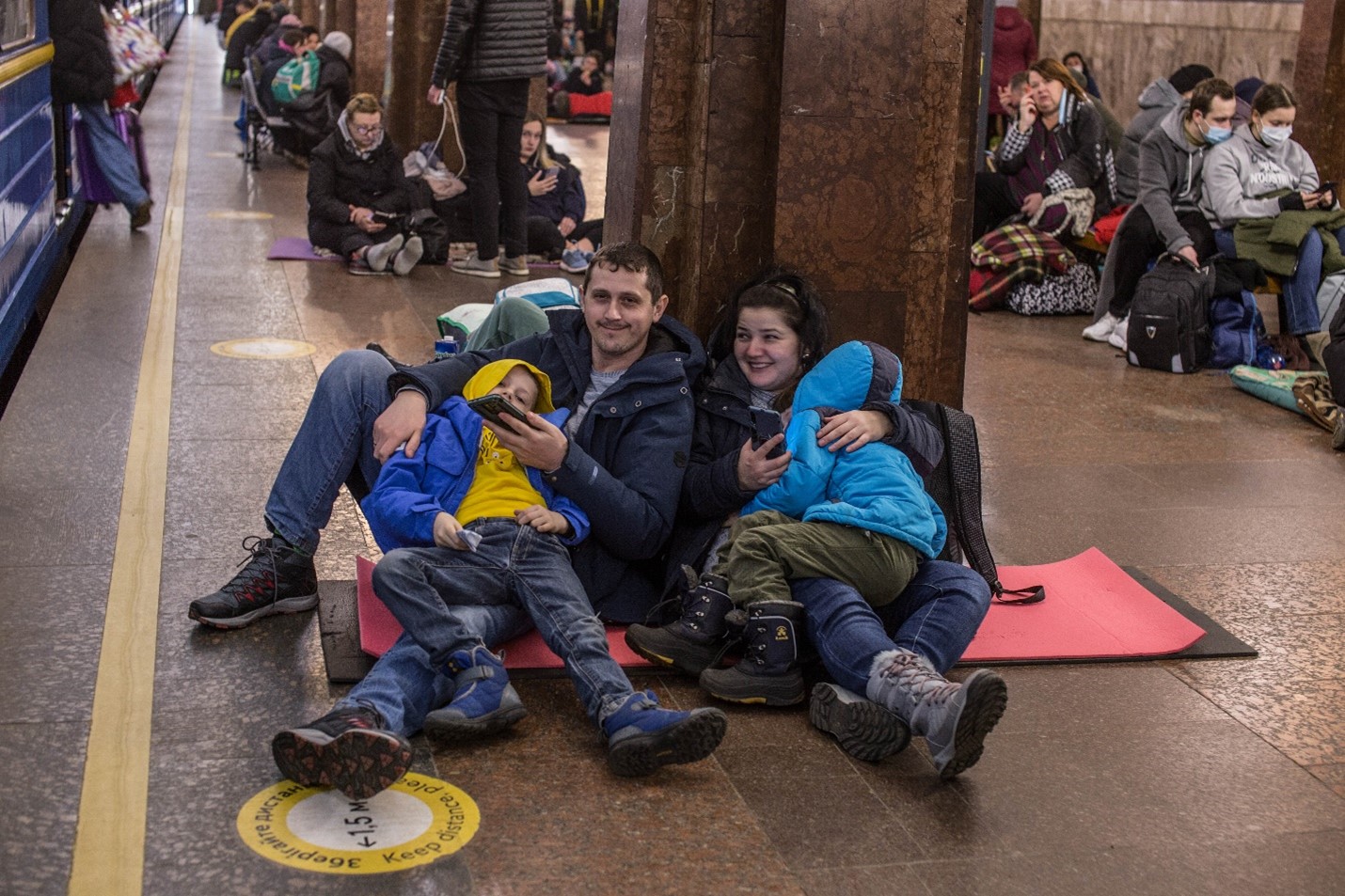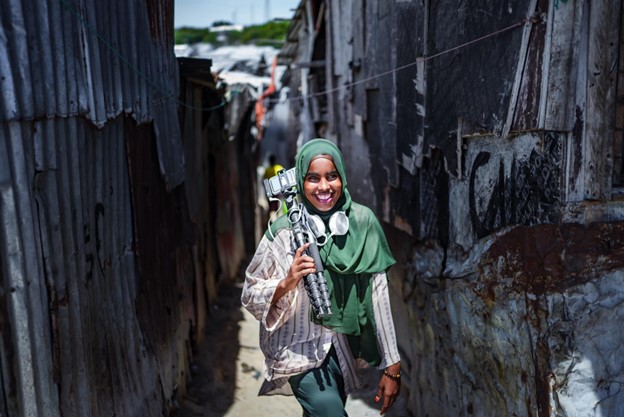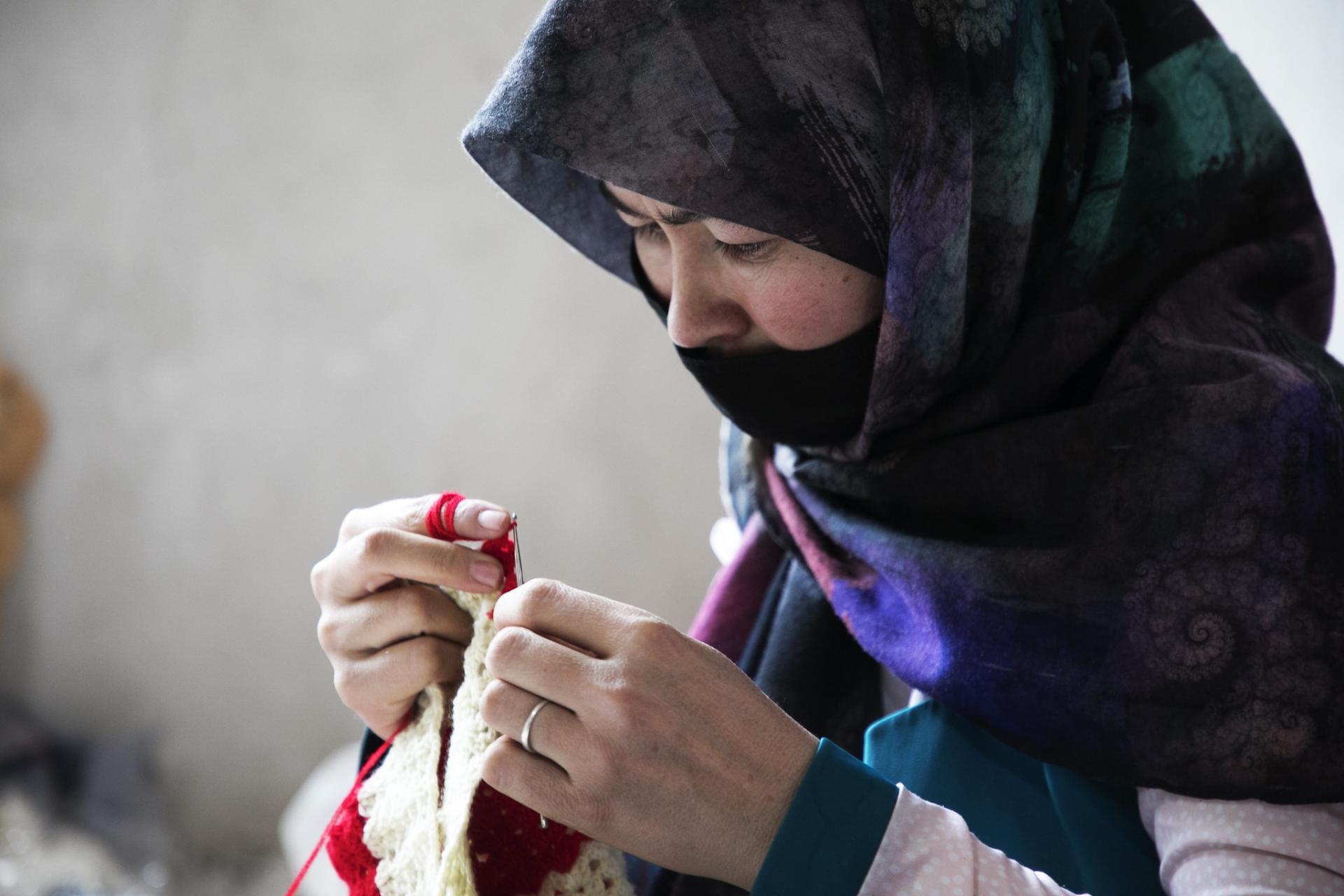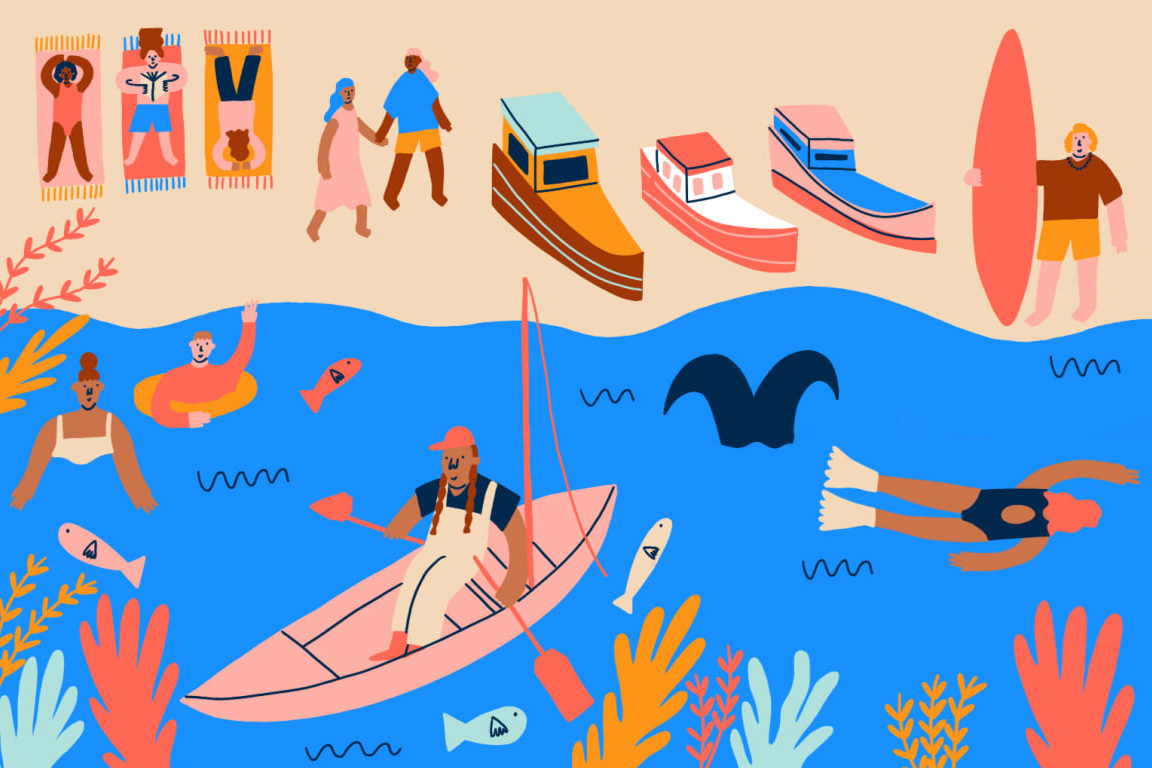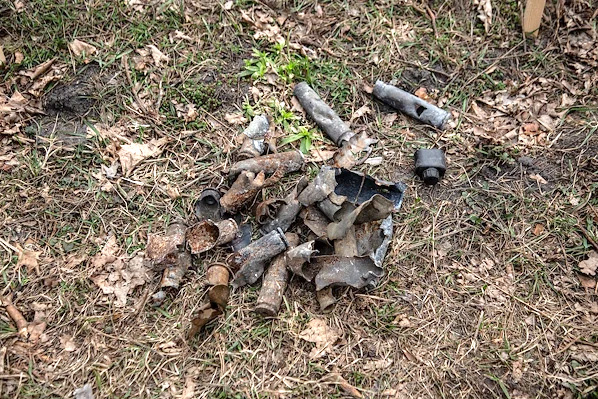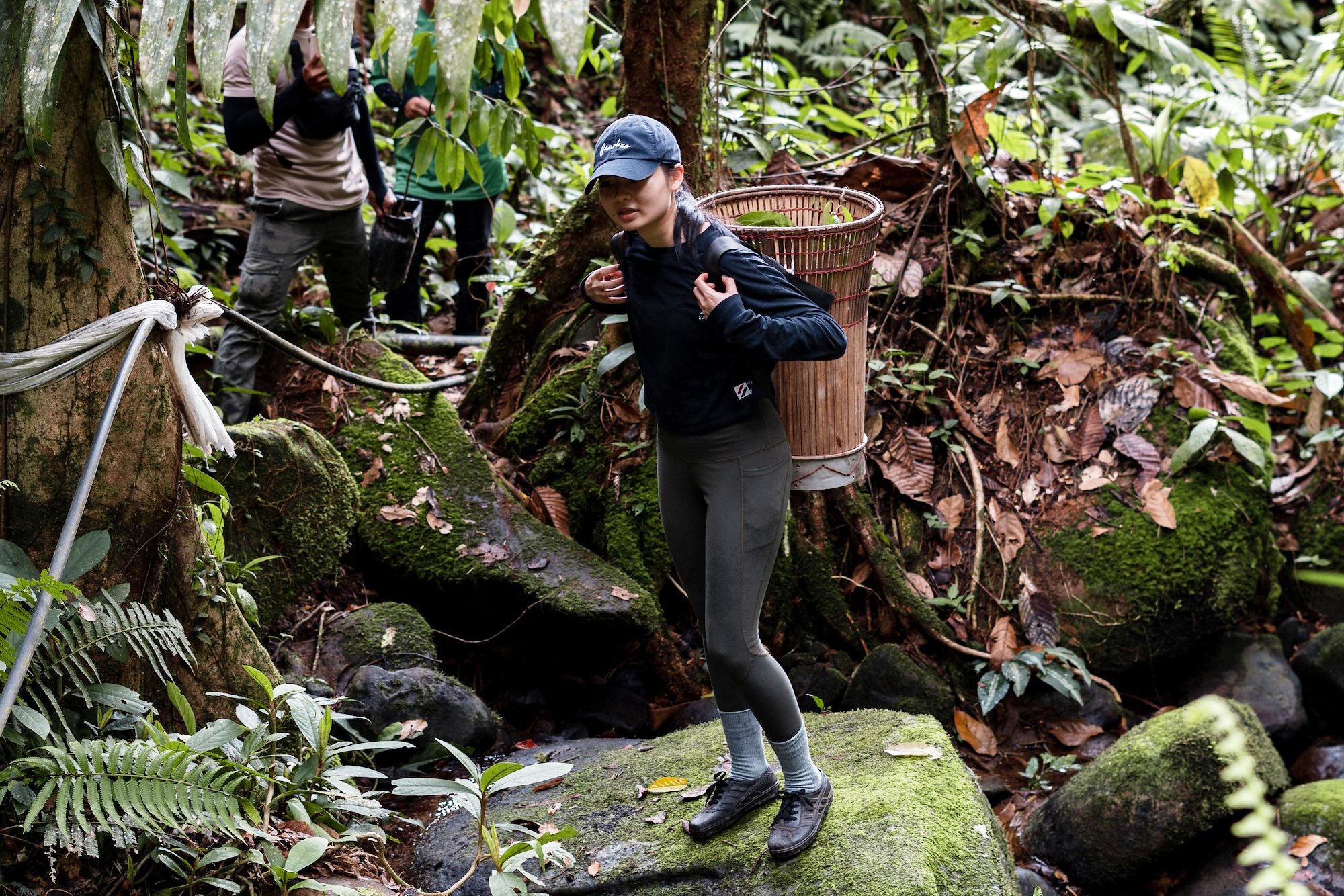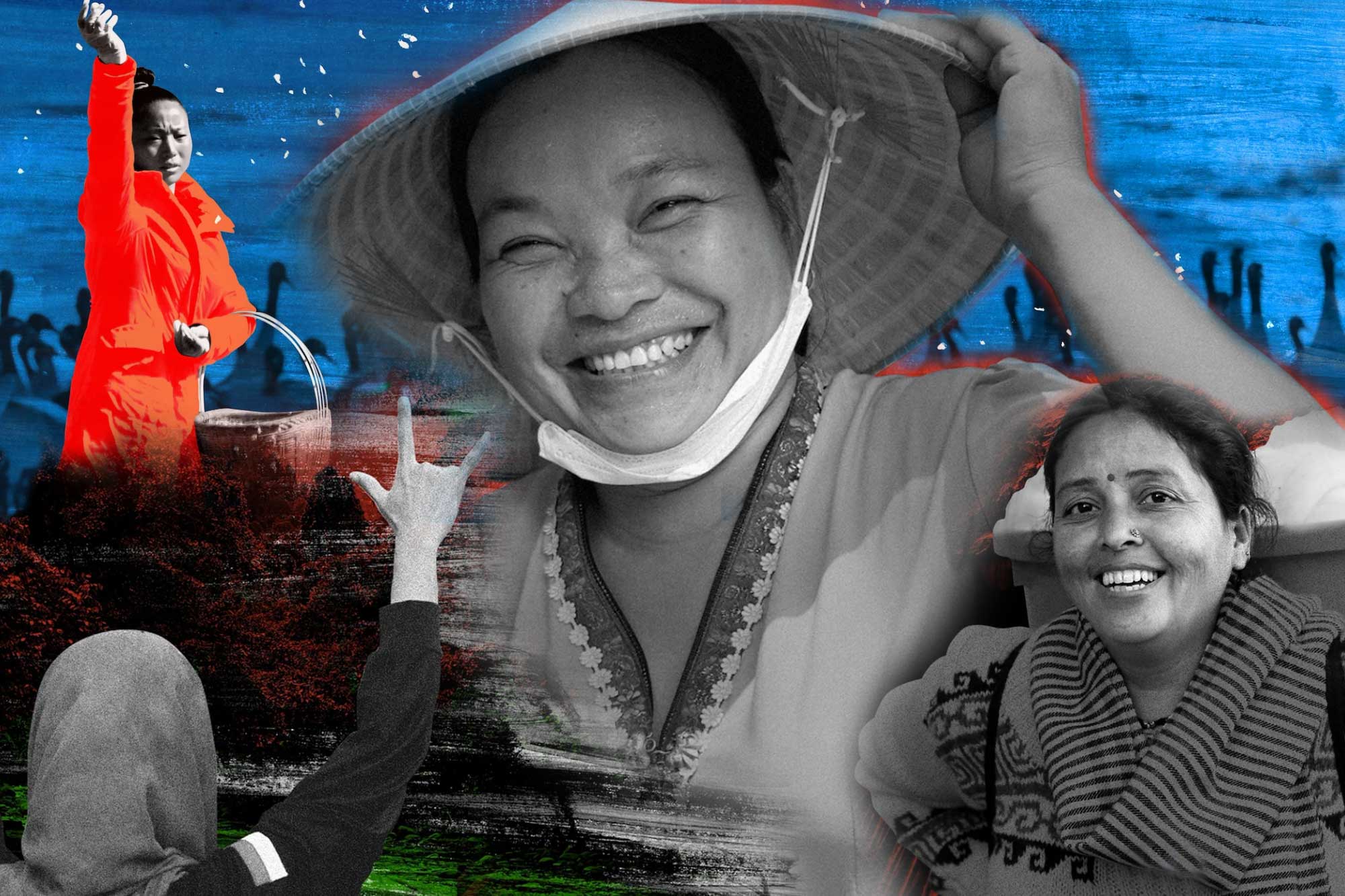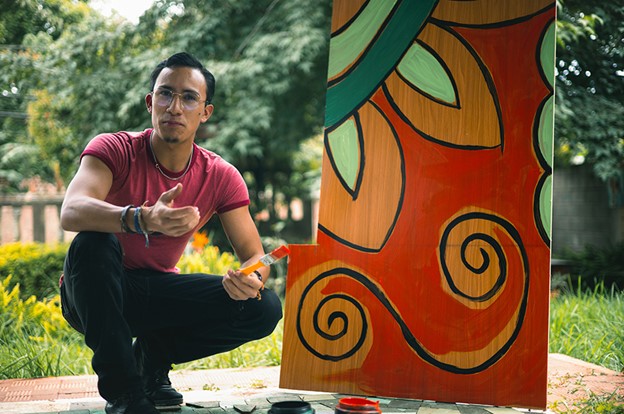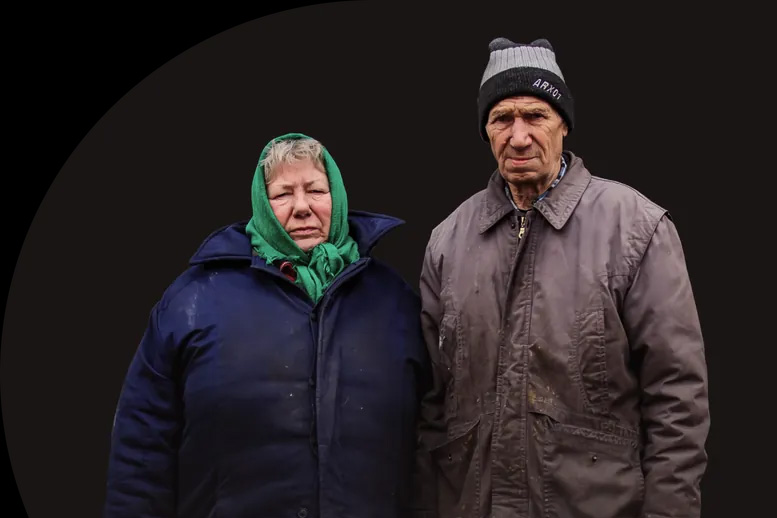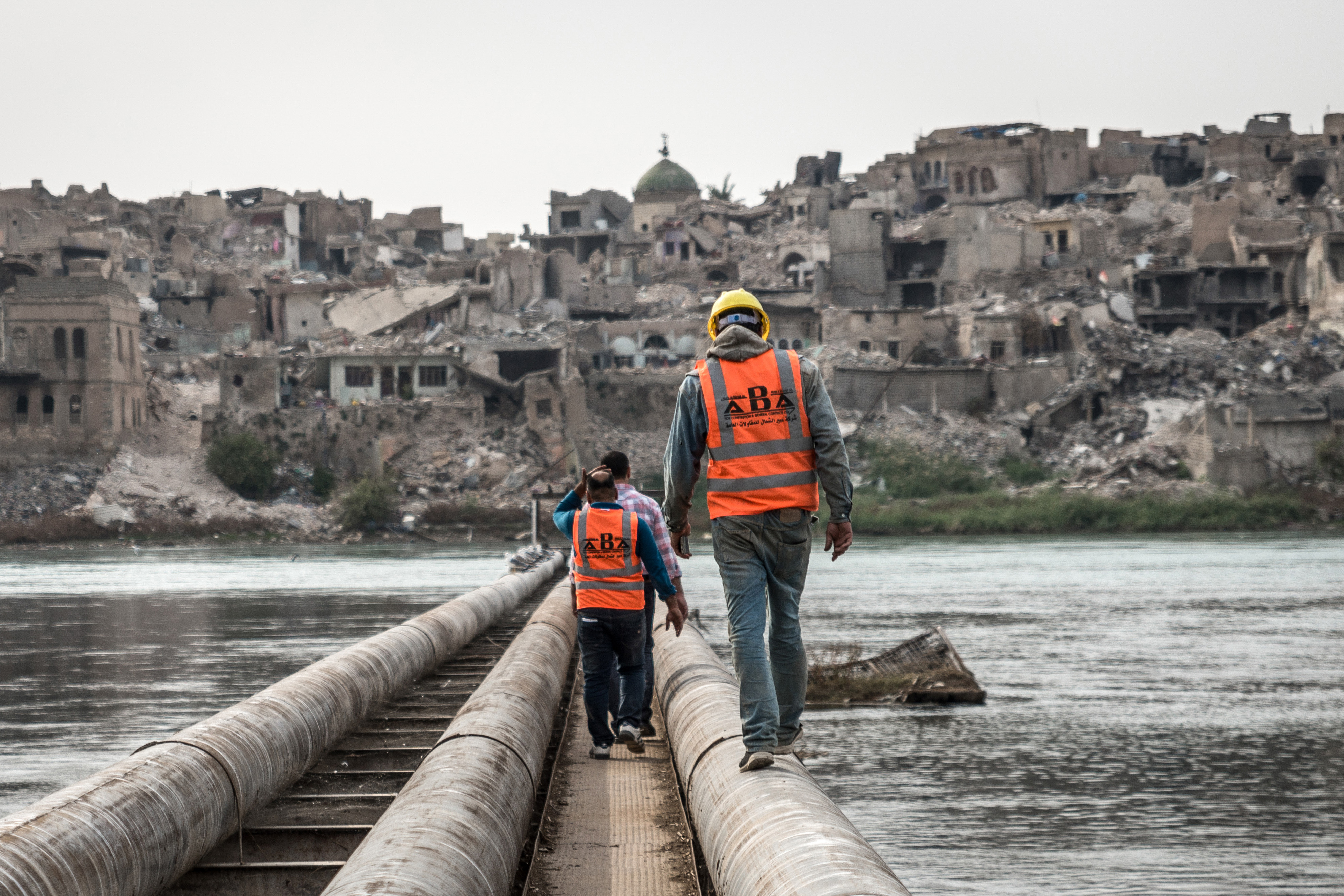Despite being plunged into war, Ukraine is forging ahead with a comprehensive re-think of how business is conducted, and how Ukrainian people interact with each other and with their government. From getting married to registering a business, the ambitious and forward thinking Diia project has proved even more critical during war as Ukrainians can get public services from the safety of their bomb shelters. UNDP has been promoting universal digital literacy and training women public servants in Ukraine in digital leadership roles.
UNDP
When Shukri Mohamed Abdi decided to work in the media, she and her family had to overcome fierce resistance and physical threats from groups opposed to her reporting, where the concept of being a journalist does not exist. The fact that Somalia’s only all-women media house, Bilan, is still in business a year after it was created with support from UNDP is a human rights achievement in itself. By freeing up a space for women to report on what they believe is important, Bilan has opened up a different Somalia to local and international audiences.
A new UNDP study of Afghanistan’s economy demonstrates that without continuity for girls’ education and women’s ability to work, prospects for the country’s recovery will remain grim.
A new landmark treaty to protect biodiversity in international waters has been agreed to – UNDP presents this interactive story of how the new High Seas Treaty can advance progress towards the SDGs.
Ukraine is now one of the world’s most heavily mine-contaminated countries. It’s estimated that about one third of the country has been exposed to war. “People suffer because of mines and unexploded ordnance. A lot of people have died, adults and children,” says a UNDP Mine Action Analyst. “It’s the highest casualty rate in the world. And we don’t know what level of contamination there will be in a few months.” The task of making Ukraine safe will be time-consuming, complex, and very expensive—the World Bank estimates that a complete clearance of explosive ordnance will exceed US$37 billion.
Babagon Catchment traverses three indigenous Dusun villages near the capital city of Sabah, on the island of Borneo. Forever Sabah – a civil society organization in Malaysia’s Sabah state is dedicated to the protection and restoration of the region’s natural habitats. The biodiversity in the catchment area boasts a wide variety of flora and fauna. But for the local communities protecting this biodiversity means protecting their water. Resident communities play a vital role in maintaining the water quality of the freshwater ecosystem. Across the three villages, community members have become River Rangers - dedicated people, who drive river monitoring and conservation efforts. With training and support, the River Rangers create maps, collect water samples, and identify biological indicators of water quality.
As the world steps forward to curb climate change and nature loss, finding solutions that work is vital. Our collective destination will not be reached without women’s equal participation and leadership. Gender-transformative work across Asia-Pacific is thwarting stereotypes, expanding opportunities, and implementing solutions. In this story from UNDP, you can read about Fadlun Bonde, a community ranger working to Combat Illegal Wildlife Trade and help stamp out crime in Indonesia; Chen Guanghui, who joined previously male-dominated professions becoming a ranger to protect black-necked cranes in China; Vi Thi Tuoi, who is working to redefine how medicinal herbs are cultivated and preserved in Viet Nam; and Vijeta, who is weaving a better future in India.
Diego Rafael Osorto’s, clean even brush strokes of paint across a wood sculpture, helped transform his passion for art into a socially responsible business. At a time when unemployment is high, corruption is endemic, and there is plenty of violence, especially gang violence punctuated by extorsion and murder, his decision to stay in Hondoras transformed his life and his community. Through a workshop by ParticiPaz, a joint project by UN Human Rights and UNDP, and funded by UN Peacebuilding Fund, he created a space for community workshops. In this space, they work to fight discrimination against indigenous people, defend their land against encroachment by big business, and fight the delinquency that was slowly poisoning his country’s youth – all the while encouraging young indigenous people to stay in the country.
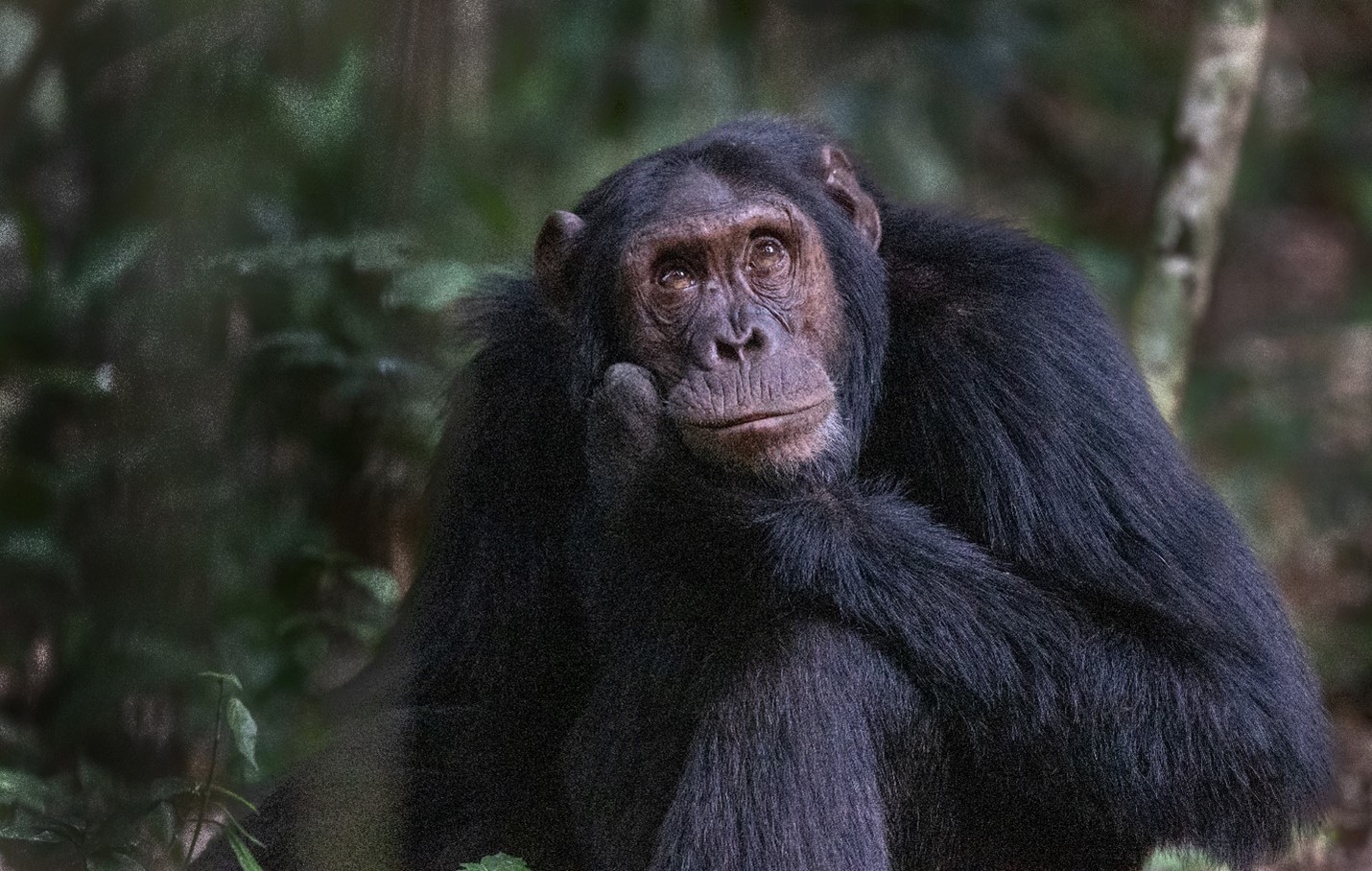
Mammalwatching: The New Ecotourism Frontier
UNDP presents a new social movement – mammalwatching. First came birdwatching, then whalewatching, now there is ‘mammalwatching’ which is like birdwatching except with mammals. Like birders, ‘mammalwatchers’ have a ‘life list’ that they actively seek to fill, and every mammal counts - from the Big Five (lions, buffaloes, leopards, elephants, rhinos), to the more humbly proportioned elephant shrew. Fast-growing nature tourism has made tremendous contributions to nature conservation, prompting the creation of protected areas, contributing to research through citizen science, and with the ecotourism dollars that bring practical financial benefits to people living in rural and undisturbed environments worldwide.
The war was just a few weeks old when Maria and Viktor’s lives changed forever. The retired couple live in the village of Moshchun, just outside Kyiv. In mid-March, the village was attacked by Russian soldiers. The home that Maria and Viktor had poured so much love into was destroyed. The war in Ukraine continues to cause widespread death, destruction and suffering. It has left nearly 18 million people in need of assistance and protection. Ukrainians are resourceful and resilient, but they will need support for decades.
Violent extremism knows no borders and evidence shows that security-driven responses produce limited results for countering violent extremism, and can even make things worse. For instance, youth are often the victims of extremist violence, yet they are also subject to excessive security measures to counter these groups. Such responses can have the opposite effect, by making young people feel further marginalized and thus more susceptible to radicalization. UNDP argues for a different approach, one that embraces youth aspirations for a productive life in a healthy society and builds their capacity to create that society.
UNDP’s work on Preventing Violent Extremism focuses on addressing the grievances that can set people on a course to radicalization or interrupting that journey before it reaches its dangerous end, while also supporting those who want to leave such groups.
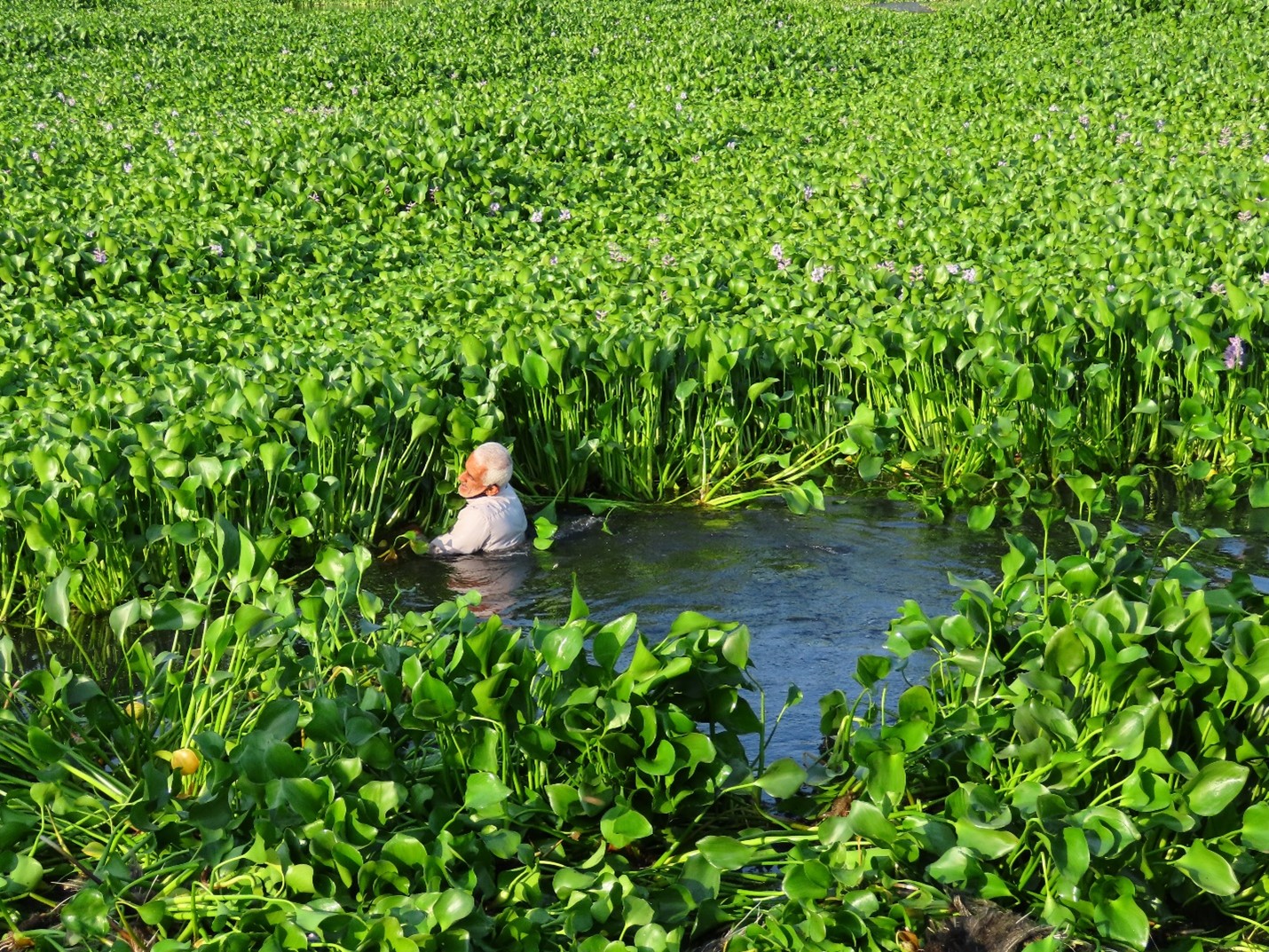
Traditional knowledge serves
Iran’s wetlands, the ab-bandaans, serve as vital environments for the protection of biodiversity, indigenous culture, and related environmental and economic functions. UNDP highlights how the locals are having challenges conserving this important ecosystem as a result of overlooking traditional conservation methods leading to the rise of fertilizer runoff, toxic waste pollution and the presence of invasive species. Through the UNDP ICCA-GSI partnership, they have embarked on a project to document wetlands biodiversity, traditional conservation knowledge and practices, and the factors leading to biodiversity loss.
We are witnessing an ongoing collision of crises for which traditional response and recovery are not enough. Our future is at stake, as wars, epidemics, the climate emergency and economic upheaval leave almost no country untouched. Emerging from crisis depends on development. Development must be invested in, systematically and comprehensively. Multilateralism and development cooperation have never been more important. The complexity of the path ahead makes it imperative to act together, in partnership. UNDP is always building on its partnerships and decades of experience in countries.
The devastating floods in 2022 were Pakistan’s worst natural disaster in decades. They left one-third of the country submerged, people forced into poverty, and 8 million displaced. An enormous challenge lies ahead. Flood damages and economic losses reached over US$30 billion, and reconstruction needs are estimated at US$16.3 billion. The International Conference on Climate Resilient Pakistan aims to bring the world together to back a strategy for rehabilitation and reconstruction that secures international support for building Pakistan’s climate resilience and adaptation.

